Natalie Gibralter loves to help. She loves to pave the way for others to grow. She loves to watch businesses develop. She loves to identify issues and provide solutions. In other words, she loves to fix other people’s problems and she’s made an incredibly impressive career out of it as Squarespace's Director of Product.
Of course, the extensive travel she did early on and her impressive degrees in philosophy, politics, and economics from Oxford didn’t hurt, either. After a stint at KIND, she started a non-profit that focused on young Israelis and cross-cultural communication, she moved to Israel to grow her company. When she returned to her native city of New York, she took on a business development role at Squarespace and eventually ended up basically creating her own position: Director of Product. She attributes her success to her passion for other cultures and interest in various perspectives, which is totally the Natalie Gibralter way: she’s great at turning the macro to micro, taking larger issues and themes and focusing them into precise, effective solutions.
With energy like that, Natalie is definitely someone we want on our side when the going gets tough.
Have you been considering using Squarespace for your own project? Well, we're giving you a special Career Contessa discount. Use the code CONTESSA to receive 10% off a Squarespace account. Yes, please.
Her Starting Point
You’re a New York-born Israeli-American who also happened to attend Oxford. Tell us a little bit about your upbringing and experiences living in the U.S. and abroad. Did having a global and multicultural perspective affect your approach to your career?
I was born and raised in NYC to Israeli parents, and I spent a lot of time in Israel and travelling abroad as a child. I grew up understanding that there is more than one valid perspective and approach to most things in life. This sparked an enduring curiosity in me to experience different cultures, languages, and ways of life and to have opportunities to challenge my assumptions and subconscious biases. I chose to do my undergraduate studies in the UK, and to live in Argentina for a while after I graduated. It’s this same curiosity that informs many of the thematic threads that I’ve chosen to focus on in my career: What are our commonly shared human behaviors that drive us toward specific choices? How can a team of colleagues—diverse in background, professional expertise, cultural touchstones—work together to develop products and systems that serve the needs and interests of an ever-growing diverse marketplace? In my current work, I believe that my global and multicultural perspective helps me look at problems from multiple angles and always question whether there is an alternative approach to a solution.
At Oxford, you studied philosophy, politics, and economics. How did your studies contribute and lead to the work you do today? Is there anything you wish you’d studied or learned in school that you didn’t?
The academic areas I studied at Oxford helped shape the cultural and historical frameworks that inform the way I engage with the world. I had studied a lot of Middle Eastern politics and wrote a thesis on a particular aspect of the Israeli-Palestinian conflict, which later helped me found an NGO to bridge the divide between young Israelis and youth of other nationalities. Through my work, I met many entrepreneurs, international philanthropists, and inspiring change agents that furthered my interest in work that can have social impact.
Looking back, I sometimes wonder how my path would have been different had a followed my high school interest in Physics, and I often think I might want to further study behavioral science. However, I think the key thing one learns at university are the skills to learn about any new subject—gaining the tools to research effectively, explore different points of view, ask questions, etc. It is those skills that have most contributed to the work I do today.
Tell us about your first job after graduation. What did you learn there that you couldn’t have learned in school or anywhere else?
My first full-time job was at KIND. We were only around 10 people or so when I joined, and we grew rapidly, so I got to wear many hats. The reason I was brought on was to revamp the social mission. At the time when I joined, KIND donated 5 percent of its profits to peace in the Middle East and they wanted to change their mission to one of fostering kindness. I spent most of my time developing a social and tech platform to further the social mission and brand. It was there that I got my first exposure to product management (even though I wouldn’t have known to call it that then). I also started the company’s field marketing program, hiring a team of 14 brand ambassadors around the US to do demos of the product at stores and promote our brand by doing kind acts. When I was first asked to do this, I was 21 and felt totally unqualified to hire and manage a national team. My father reminded me that the CEO wasn’t under any illusions about my qualifications, and if he was willing to give me the chance, I should take it. I learned so much so quickly from that experience—things I could neither have learned in school, nor by observing someone else. That job encouraged me to take risks and helped me not be afraid to fail.
Before joining Squarespace, you actually started your own non-profit called TrailTalks. Tell us a little about that experience.
There are about 30,000 young Israelis who travel abroad each year and who tend to stay in very insular groups. In meeting and speaking with many of them when I was traveling in South America, I found that they were often quite interested in meeting local peers and travelers of other nationalities, despite gravitating to other Israelis. I became interested in seeing how I could help them break the barriers that stood in their way of reaching out to others during their formative trips because I believed that if they did, they might seed a significantly less insular generation with meaningful macro-political ideas and perspectives. The idea began to get a lot of traction among young Israelis. I was able to raise nearly $100k to develop the program, and so I decided to move to Israel and pursue it.
I learned so many things from that experience that still apply to my career today. One important lesson is just how powerful a motivator a sense of purpose is. The amazing people who donated significant time and money to build the program with me were motivated by the vision of the impact we could and did have together. Also, leading a team of volunteers helped me develop a style of leadership that relies very heavily on figuring out how to motivate individuals rather than using hard authority.
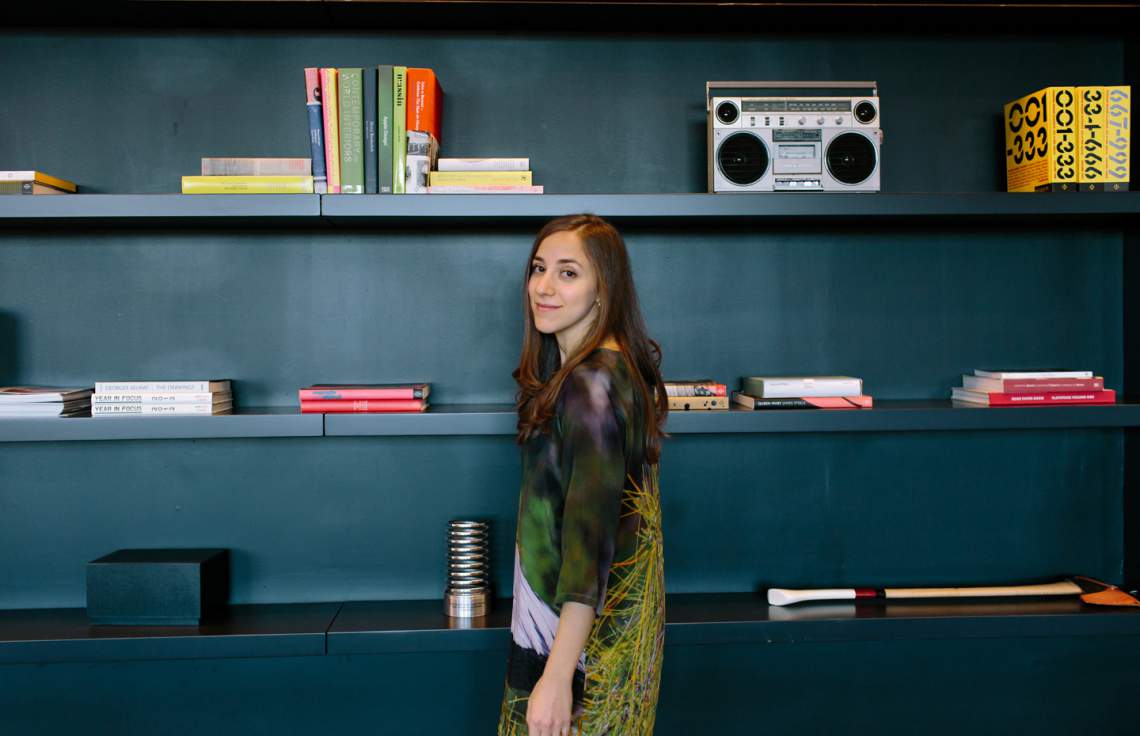
Her Big Break
Ultimately, you founded the product management function at Squarespace, because it didn’t exist when you started. What steps did you take to convince the team to let you run with the idea for the position? Is there any advice you have for someone who wants to create a position from scratch?
When I first joined Squarespace, we had a very explicit culture to build products that solve our own problems and then scale them to the mass market. A couple of months after I joined, I learned that there was an engineer building an e-commerce feature but no one at Squarespace was actually fulfilling orders and managing inventory so we didn’t have a close understanding what the product needed to solve for. I volunteered to run a beta test to better understand our customers and their needs, determine how to adapt the feature to better solve for them, and develop a go-to-market strategy. E-commerce quickly became a very successful product and business for Squarespace and after about a year of doing the product management work for the product, I became the first Product Manager at Squarespace. Some people were initially concerned that product management might demotivate the engineering teams as they traditionally had complete product ownership over the features they built. However, the engineering team working on e-commerce ended up being one of our most motivated teams because everyone who worked on the product had a very deep understanding of the problems they were solving and a clear sense of success. We developed a very collaborative product development culture across engineering, design, and product management. We proved the model so successful that eventually there was company-wide buy-in to build out a product management function across all of our product areas.
My advice to someone looking to create a new position in an organization is to focus on the gaps you see in process or function, and fill them! Do the work and solve the problem—worry less about getting the position. If you can demonstrate success and add value, people will want you to keep doing it and the position and title will come.
For those of us who don’t know, tell us what a Director of Product does.
My key responsibilities include growing and developing the product management organization while driving the strategy for the portfolio of products I am responsible for. My typical workday varies widely but will usually include a hiring interview, a meeting with a product manager on my team, and some cross-functional meetings or calls with external product partners. Otherwise, I will focus on current priorities that can vary among strategic planning, helping unblock projects, working on improving our organizational processes, personnel issues, thinking up new product ideas, and more, depending on the day. Whenever possible, I generally try to front-load my meetings in the first half of the week to allow myself some more time for deep thinking in the second half. I spend every Friday morning listening to customers so that I’m never too far away from the problems we can solve for them. My favorite part of my work is helping the product managers on my team grow and develop.
You joined Squarespace almost five years ago, and that’s a really long time to stay in one place these days, especially in the startup world. What is it that you love about the company, and what keeps you there?
I first discovered Squarespace when I used it to build the website for TrailTalks, the organization I founded. I felt so empowered by the platform, which helped add legitimacy and credibility to our young non-profit. So, when I returned to NY, Squarespace was the first company I thought to reach out to. To this day, I remain deeply motivated to come to work every day because of the impact I believe Squarespace has in creating equal opportunities for all ideas to succeed by making great design accessible. That is a big part of what has kept me here all these years. Additionally, as the company has grown, my role and responsibilities have changed so meaningfully that I have remained continuously challenged. And finally, it always comes back to the people. I so deeply like and respect the people I work with every day.
What do you like about working in technology and startups in particular? Since you started at Squarespace, how has the field evolved?
I really enjoy solving problems that don’t have obvious answers. Since technology is a field defined by innovation, it is full of those types of problems. Since I joined Squarespace, one of the most meaningful changes has been the rapid shift to mobile and apps. This is changing the way people are consuming web content, and we have been investing heavily in ensuring that Squarespace can enable people to reach their audience wherever they are, whenever they need access, using whatever kind of device they choose.
Where do you think Squarespace and your industry are headed next? What developments are you most excited about?
Squarespace helps people with creative ideas succeed. Over the past few years, we have expanded from being a platform that helps people present their ideas online beautifully to also providing the tools that enable people to achieve their goals, whether it be sales, lead generation, or getting hired. I’m really excited about our growing e-commerce platform that is helping hundreds of thousands of people launch and run businesses, and the deepening of our analytics platform that is helping our customers identify opportunities for growth.

Her Perspective
A lot of our readers would kill to work at Squarespace. How would you recommend someone who’s interested in joining your team (or one like it) get into the industry? For a role in product management, what do you think is the most important thing to have on your resume? Who’s the ideal personality type?
There are so many ways to get into product management, and there isn’t one path. My advice to anyone who doesn’t currently work in the field is to identify a problem you want to solve and start developing a solution. Speak with potential users, validate your approach, iterate on a prototype, etc. You can also try to find opportunities to apply product thinking in your current role. Perhaps there is a productized solution that can help your team improve a particular process. If you can talk about how and why you identified the problem, defined success metrics, considered different solutions, chose the solution you did, validated that solution…that would be pretty compelling.
We talk a lot about work-life balance here. Since your company is an internet-based startup, do you ever turn off fully? What’s your favorite way to de-stress or unwind?
There’s a very healthy culture of work-life balance at Squarespace. Of course, there are the occasional late nights and working weekends, but it is generally the exception rather than the norm. I am a big believer in turning off fully during vacation in order to fully engage different parts of my brain and come back with a fresh perspective. To that end, my husband and I generally choose to travel to places that expose us to different cultures and allow us to speak different languages. When I go on vacation, I set the expectation that I will not be looking at my work email, and I give my boss and direct reports my personal phone numbers and email for emergencies. I also meditate every morning and practice yoga a few times a week to keep things in perspective, and I like to unwind after work by playing the piano.
Have you ever found it difficult as a woman working in a largely male-dominated field? What do you think the most important thing is for a woman who works in tech services to keep in mind?
Something that can affect women’s experiences in a male-dominated field is the number of other women they work with, especially in leadership positions. Both early on in my career and as I moved into more senior roles, there weren’t many women in leadership positions (and none at all in product or engineering roles). While I had wonderful male mentors, when it came to modeling leadership style, there were occasionally certain aspects of their style that didn’t feel natural for me to adopt as a woman. As such, I had to find a style of leadership that uniquely worked for me. This was a blessing in disguise because it enabled me to be very true to myself and trust my instincts around how I would be most effective at getting buy-in for ideas, balancing authority and warmth, etc. I think an important thing for women in tech to keep in mind is that the challenges we sometimes face as a minority can also help us to develop our strengths.
And finally, what do you wake up looking forward to? What’s next for your career?
The first thing I look forward to upon waking up is breakfast with my husband, Aaron. But once I get into the work mindset, I get really excited about the new features and products our team is launching and I look forward to getting to work. In terms of what’s next for my career, I think it’s continuing to focus on the career development of others. I find strengthening the competencies of my team members and helping to optimize the potential of each individual on my team really rewarding.
This interview was sponsored by Squarespace. Don't forget to use the code CONTESSA to receive 10% off a Squarespace account. And thanks for supporting the brands that support Career Contessa.
You May Also Like
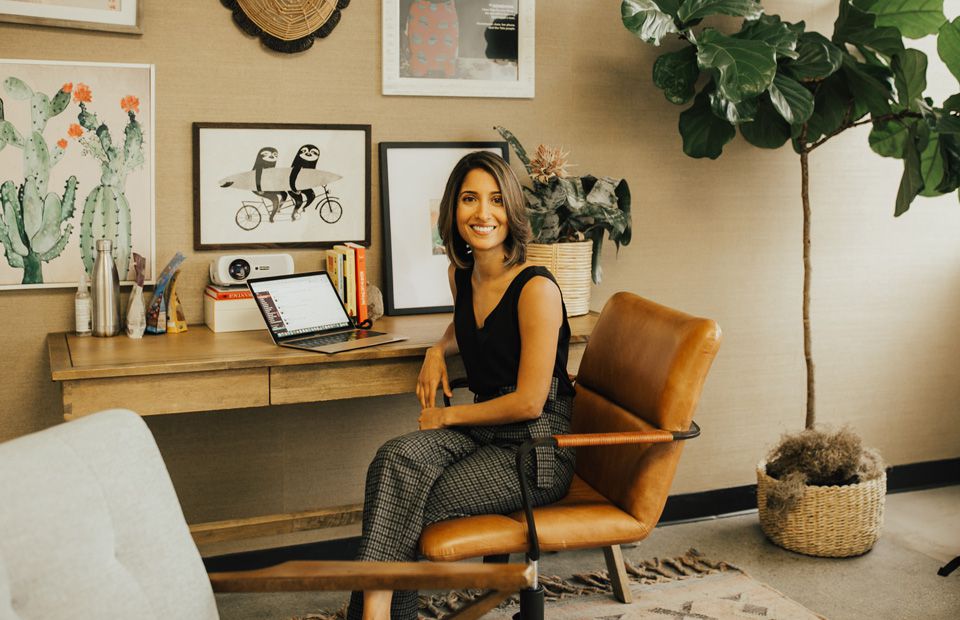
Technology
A Tech Founder on Why Being an Outsider Is a Strength
"I actually think most successful founders are rebels, of a sort. We’re trying to do new things and take on entrenched systems or ways of thinking. What makes me and our company different is that we’re outsiders."

Technology
Omoju Miller—Tech Veteran, Leader, and Volunteer Advisor to the Obama Administration—on The Crucial Role of Creativity in the Tech Industry
"If you are in an environment where you feel marginalized, leave. Don’t try to change it. Go and look for a place that sees you and lets you be you."
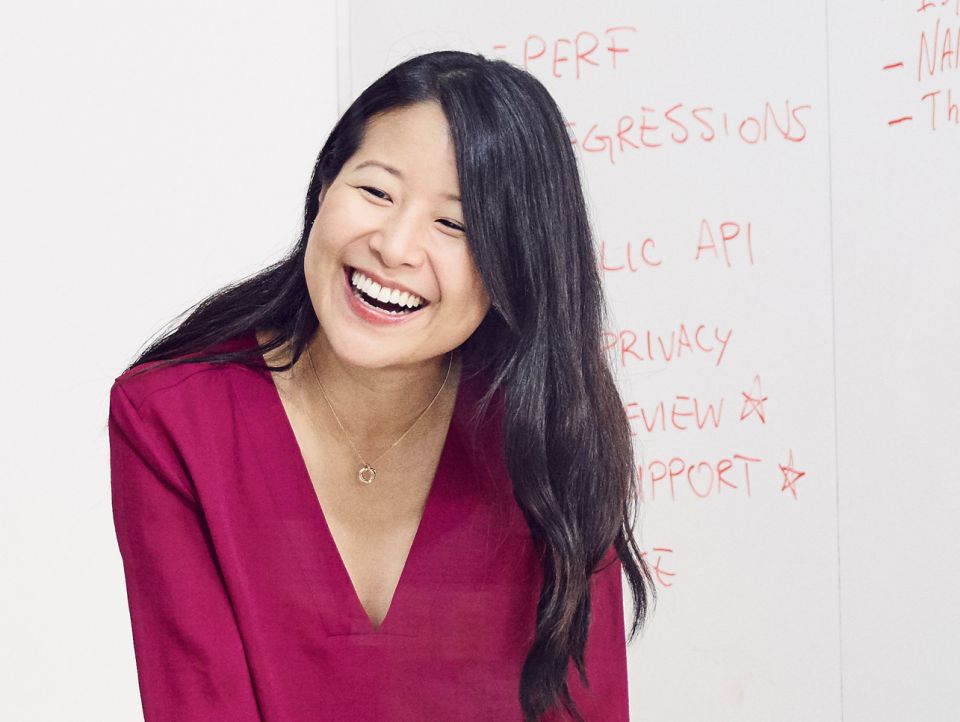
Technology
Sharing Stories as a Software Engineer
We sat down with Apple software engineer Emilie to learn about her day-to-day working at Apple along with what it takes to run the perfect meeting and her favorite ways to unwind.
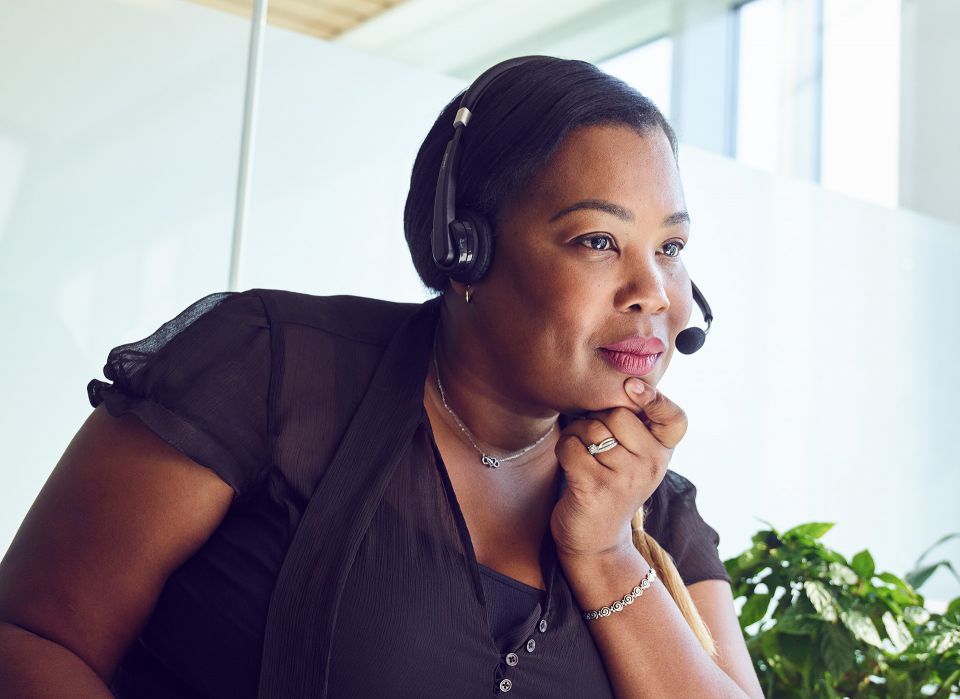
Technology
Creating Impact with Apple
We sat down with Apple's Senior Developer Partner Relations Advisor, Cris, to learn about what it takes to create a lasting impact within a large company. She shares a typical day in the life, her favorite book recommendations, and her top four tips to running a meeting.
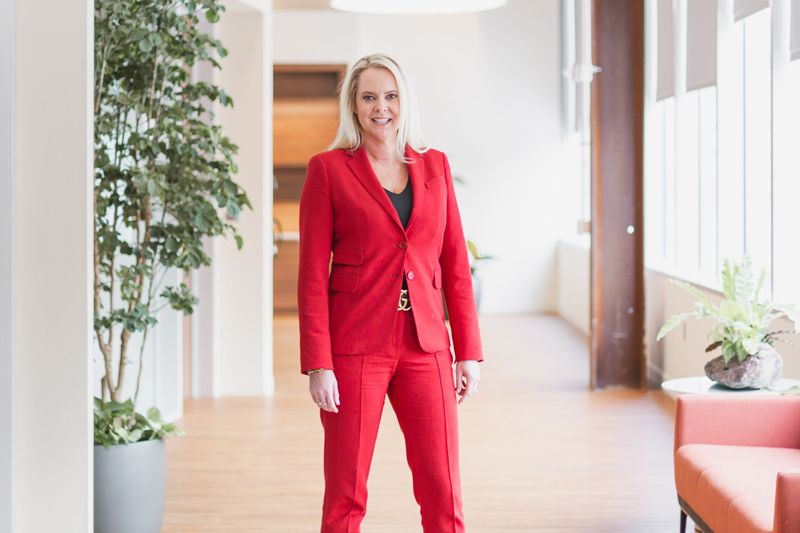
Technology
Salesforce’s Senior Vice President of Sales on Unconscious Bias, Failure, and Innovative Leadership
"Do not be afraid to fail, just bring your best self to the table."
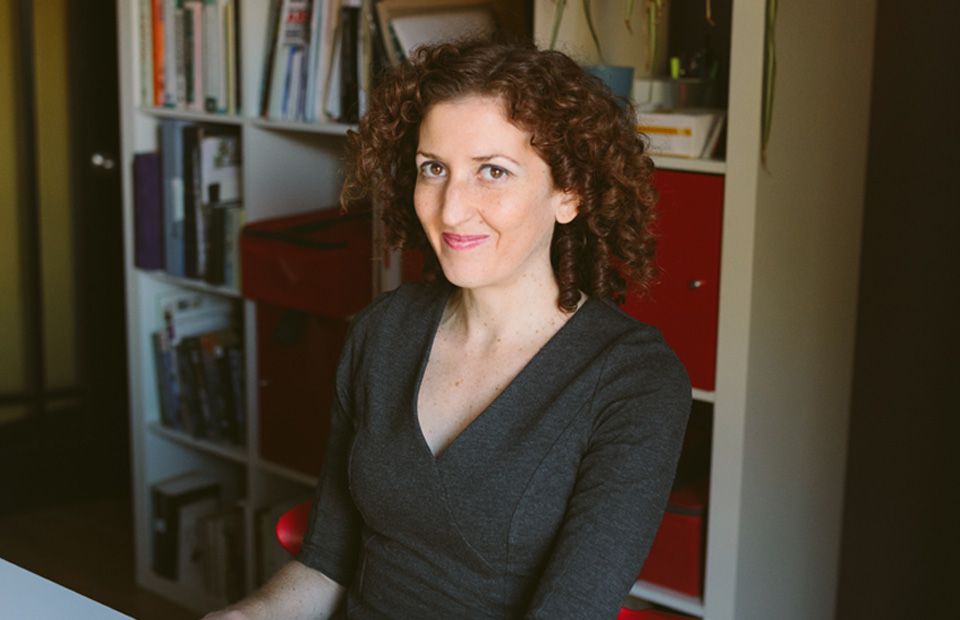
Technology
A Director of Engineering on Tech + Leadership
"I don’t believe in 'having it all'. If you spend more time on one thing, then you spend less time on another thing. All we can do is make choices on how to spend our time."
Get the Best Career Advice Delivered To Your Inbox
Join our newsletter to stay in the loop.
